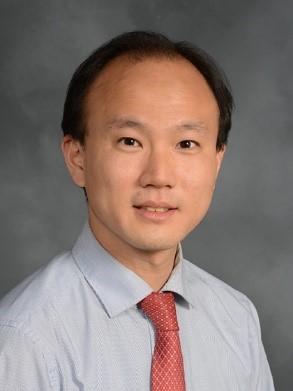Perspectives From an Early Career Academic Cardiologist
As a new academic term approaches, I wanted to share five experiences and "life lessons" gained from my first two years as an academic non-invasive cardiologist:
Managing Patient Inbox Messages
With more healthcare practices utilizing electronic message portals for patients and the integration of more virtual interfaces since the pandemic, I have found addressing patient messages in a timely and thorough manner to be arguably the most challenging part of outpatient medicine. The electronic messaging system within the sphere of academic medicine, where your time is divided between clinical care and other academic interests, is quite voluminous, and there is often no easy method to filter out non-urgent patient issues from those that need emergent medical attention. In addition, the messages are not easily billable encounters. In the post-pandemic era, we need to find a solution to keep up with the demand of electronic messaging and patient care, while also allowing early career doctors thrive in their individual pursuits.
Learning to Say No
When first building your practice as an attending, there is a strong urge to say “yes” to all requests from trainees, colleagues, or administrators to remain collegial and be a team player. However, clinician burnout is a real issue and over time I have learned the importance of saying "no" when it matters. We are often on the fast-track path during our training years, constantly achieving and working towards the next goal. It was a while before I started to take time for myself, which is just as critical for career longevity. Carve out a little extra time in your day for self-care or block out your schedule a half hour early. These are simple measures for a well-balanced future. As Warren Buffet said, “The difference between successful people and really successful people is that really successful people say no to almost everything.”
Becoming a Jack of All Trades
When you are first graduating from cardiology fellowship, we are often asked “What is your niche?” There is an enormous pressure to subspecialize in academic medicine and we often feel the need to fulfill that expectation. However, though I do have a specific interest in lipidology, I have kept my skillset broad. In your early career, maintaining broad interests allows you to find the best balance between your interest, abilities, and needs of the institution; you can explore new areas of cardiology you otherwise may never even thought about. Some of the best athletes played multiple sports early on in their training, which helped them in their future successes in their primary sport. I think the same analogy holds true in the game which we call medicine.
Learning Advocacy and Health Policy
While fellowship trains you very well to take care of the patient in the clinical sphere, I realized as an attending I knew very little about the finances, policies, and administrative aspect of medicine. This past year, I attended my first ACC Legislative Congress and found it to be an eye-opening experience. To improve patient outcomes, we need to understand the underlying systematic issues in medicine. I would encourage you to participate in your local chapters and read the policy sections in newspapers and journals, even if it is for a few minutes each week. You will be a better doctor if you educate yourself on the administrative side of medicine.
Finding Mentors a Few Years Ahead of You
We often seek out senior mentors who are well accomplished and have many years of experience. While this remains critically important, it is also vital to have mentors who are just a few years ahead of you in training or practice. They often provide more practical and relevant advice because they have likely faced similar challenges you are about to encounter, both personally and professionally. It could very well be the colleague you least expect.
Despite the challenges of a career in academic cardiology, I am grateful each day for the opportunity to be surrounded by people who are curious and passionate about patient care. My dad passed away unexpectedly during the very beginning of my intern year, and this event has constantly reminded me to not to focus too much on “academic achievement.” We are already in a privileged position to bring healing to those in need, serve as an academic mentor, and cultivate our curiosity to advance the field of cardiovascular disease!
This article was authored by Samuel Kim, MD, FACC, a general cardiologist with a focus in preventive cardiology and clinical lipidology, at New York-Presbyterian Weill Cornell Medical Center.
This content was developed independently from the content developed for ACC.org. This content was not reviewed by the American College of Cardiology (ACC) for medical accuracy and the content is provided on an "as is" basis. Inclusion on ACC.org does not constitute a guarantee or endorsement by the ACC and ACC makes no warranty that the content is accurate, complete or error-free. The content is not a substitute for personalized medical advice and is not intended to be used as the sole basis for making individualized medical or health-related decisions. Statements or opinions expressed in this content reflect the views of the authors and do not reflect the official policy of ACC.
